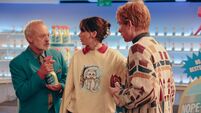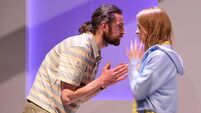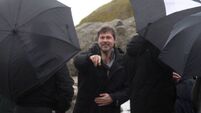Culture That Made Me: William 'Hammy' Hammond of Cork Folk Festival
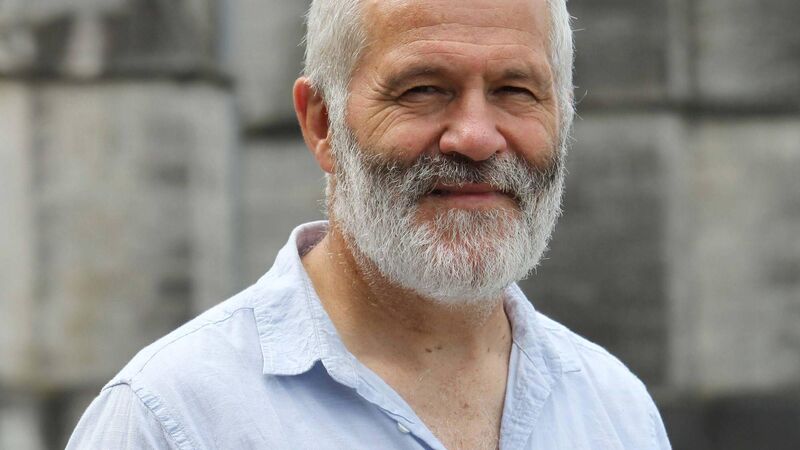
William Hammond is about to oversee the 46th Cork Folk Festival. Picture: Diane Cusack
Born in 1959, William ‘Hammy’ Hammond, grew up in Fermoy, County Cork. He volunteered with the Cork Folk Festival in 1986, becoming its co-director three years later.
In 1988, he published the first of three set-dancing books. He was a founding member of the Spirit of Mother Jones Festival in 2012. Last year, he published Cork Folk Festival 1979 to 2024: Reeling Down the Years.
At the upcoming 46th Cork Folk Festival, he will present an audio-visual tour of the festival, Civic Trust House, 1pm, Friday, October 3. See: corkfolkfestival.com
Fermoy’s live music scene
Fermoy in the 1970s was a massive town for music. You had the Dubliners with Luke Kelly playing there, you’d have Horslips playing in the Top Hat, and other people like the band Tweed playing inside The Twilight Zone. Gigs and sessions everywhere.
Rory Gallagher
Rory Gallagher turned my head to something different completely. Rory had these sessions in Cork City Hall in the 70s, always around New Year. He’d do three or four gigs, full houses. We’d be all sitting down, no standing, inside the City Hall. They had these old iron seats, linked together.
If anyone did a bit of air guitar with the hair flying, he’d be immediately told to sit down by the bouncers: “You can’t be doing that!” I loved his acoustic set as well, with the mandolin, incredible. It drove us all crazy.
Macroom Mountain Dew Festivals
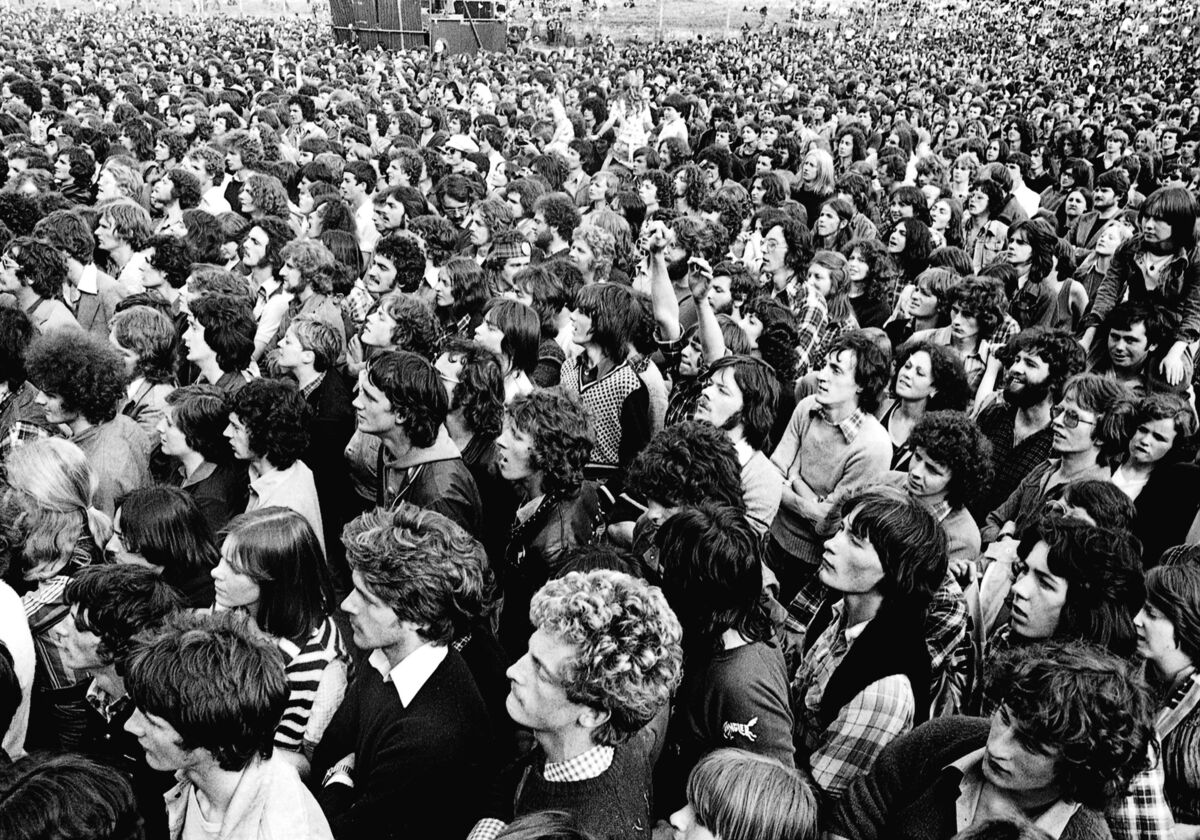
I went to the first Macroom Mountain Dew Festival in 1976, and the second and third one. I hitched from Fermoy to Cork, with a tent, a tin of beans and a few pound. It was very basic, but we had our ticket. When you arrived into Macroom, everyone was sitting down in the square, shooting the breeze, meeting friends. Nearly everybody headed up by the Sullane River bridge to camp. Hell’s Angels set up camp as well with their motorbikes and big tents.
If there was rain, you wouldn’t even think twice about it. It was amazing to see the big crowds. There must have been 20,000 at it. There was always a great show of Cork musicians. I remember Hot Guitars and Sleepy Hollow playing there.
Timmy ‘The Brit’ McCarthy
Timmy ‘The Brit’ McCarthy gave me the love for the whole music scene. In the early 1980s, Timmy used to run céilí dancing classes down in the South Parish Hall, off Douglas Street, in Cork. I went to the class and immediately got involved with Timmy, going around the country to dances – to Dan O’Connell’s bar in Knocknagree, meeting people like Johnny O’Leary, Julia Clifford, Jackie Daly, all the Sliabh Luachra musicians, and down to West Kerry, meeting Séamus Begley, Steve Cooney, Brendan Begley, all the musicians and dancers from there.
Timmy was a character. He was charismatic. He had a way of getting you interested in what he was interested in, of persuading you that what he was thinking was the right thing. He made an impression on everyone he met. He was passionate about anything he was doing, especially music of the Cork/Kerry area.
We used to meet in the Malt Shovel Bar, which is now the Spailpín Fánach, chairing Cork Folk Festival meetings and stuff like that, which were always good craic. Country people immediately warmed to him even though he had a profound English accent in the early years. In other circumstances, they would be a bit suspicious: “Why is this man with an English accent coming down to check us out, like?”
Mártín O’Connor
The accordion is my chosen instrument. I’m still struggling with it, but I love it! Mártín O’Connor is the one I would always go back to, one of Ireland’s finest accordion players. He can put so much into the music and always be on time. He does this tune, The Road West. It’s about a bumpy road.
You feel like you’re on the road because of the way he’s playing the accordion. It’s brilliant. He can put an incredible amount of music into a short piece of music. He can really lift a session or a concert.
Paddy Keenan
Paddy Keenan is a popular one at the Cork Folk Festival. He attracts an amazing crowd of people. He’s like a magnet. Sometimes people just want to be in his company.
Obviously, he got a lot of his music from the Travellers. Then he developed it with the Bothy Band and various groups. He played a lot with Séamus Creagh when he came down to Cork. They did an album together. Paddy has a great knowledge of the pipes.
When he’s in form, he’s bewildering because he gives it socks. He doesn’t hold back.
An unforgettable night
One Cork Folk Festival concert from 1987 in the old Country Club Hotel, which is now the Montenotte Hotel, sticks out. We had the famous fiddle player Seán McGuire. Also on the bill were John, Phil and Pip Murphy, three harmonica players from Wexford; a supergroup, Relativity, including Johnny and Phil Cunningham from Scotland, and Triona Ní Dhomhnaill and Micheál Ó Domhnaill, both of The Bothy Band. It was an incredible night of music — of different styles, all in one concert.
Paddy Galvin
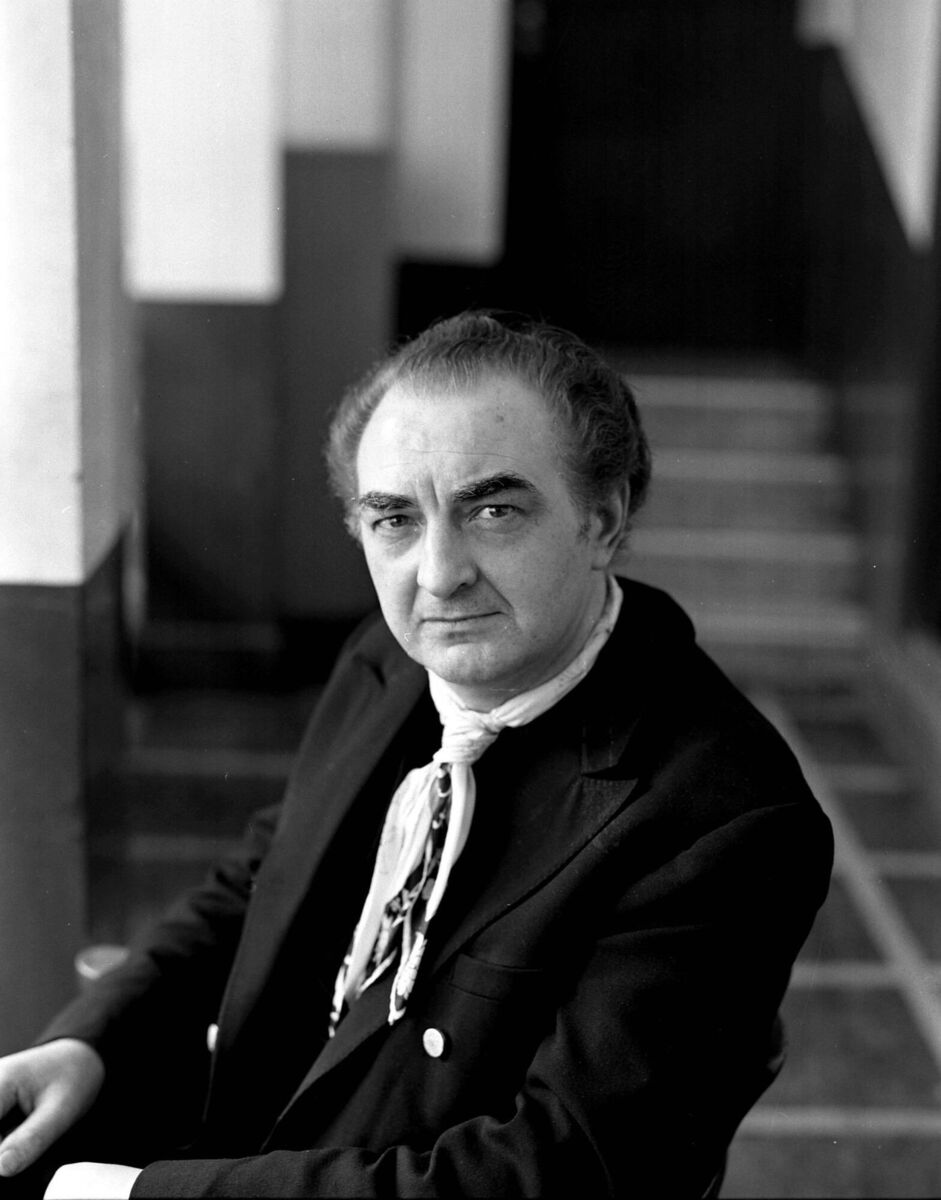
I’m mad about Cork poets. My go-to one was Paddy Galvin. He performed at the folk festival because he was also a folk singer. He was the essence of Cork of an earlier era — the 1940s, 1950s, all very urban, very working class. He wrote this poem about The Madwoman of Cork: “I am the madwoman of Cork / And today / Is the feast day of Saint Anne. / Feed me.” John Spillane adapted it into a song. I always admired his work.
Gerry Murphy
In more recent times, I’m drawn to the poet Gerry Murphy. Some people turn it off, but Gerry’s always turned on. He has great stories and a huge collection of poetry. When he comes to the Singer’s Club, he always has a new poem, which will be shocking and full of irreverence. There’s nothing he’s not irreverent about! A Small Fat Boy Walking Backwards would be one he would recite. He has titles like My Life as a Stalinist, about his flirtations with international socialism. Gerry is as far from a Stalinist as you could get!
The Leenane Trilogy
Seeing Martin McDonagh’s (above) Leenane Trilogy was brilliant. It was like Seán O’Casey had arrived in Ireland in the year 2000. When you think about O’Casey and his productions about Dublin around 1916, in small rooms, Martin McDonagh’s trilogy of plays felt like that. There was always a turn in the drama too. You never knew what was gonna happen, but you knew it was going to be good!
Seán O’Casey’s advice
I found, while going through my father’s [Bill Hammond] papers, a letter from Seán O’Casey dated 1959. My father won various awards as a playwright. He wrote to O’Casey, who was involved with the Abbey, asking him for advice as a playwright, and he gave him examples of what he was writing. O’Casey wrote back a long letter: “Look, Bill, it’s like this. I’m nearly going blind. I’m not sure if I can give much advice, but stick to your roots, stick to what you know.” It was nice of him. I was dumbfounded when I found it.
